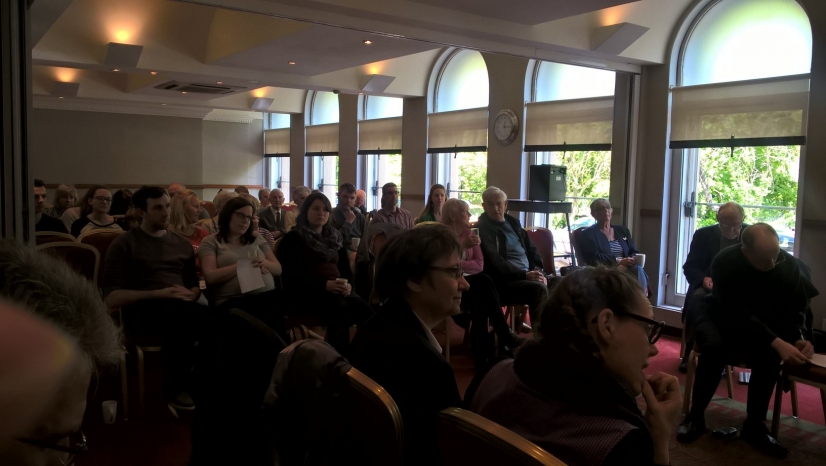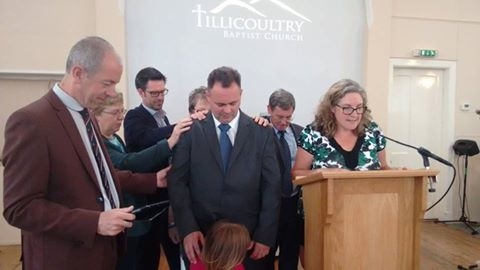The unfolding of events in the week since the EU Referendum has been shocking and horrifying with a Westminster government that seems to be in chaos, each side slinging more mud than ever at the other.
Meanwhile those who had no voice in any of this, the many EU nationals who wipe bottoms in care homes, pack strawberries for supermarkets, carry out life saving surgery and teach in our universities, are understandably angry and frightened.
Xenophobic langauge and attacks. Lies, damned lies and "expletive deleted" lies are still being peddled by foolish people for whom, it seems, this was all a game, with no thoughts for the consequences.
As a Remain voter (perhaps my past public neutrality, at least on this, was not such a wise thing afterall) I have joined in the straw-clutching exercises of signing petitions and writing to my MP. Whilst I have little residual hope that this will affect the outcome, at least, for once, I've stood my ground and done something, however little, and however much too late.
I agree with those who say that dilly-dallying is not an option - either work has to start to invoke Article 50 or a clear decision not to act on the referendum made, and soon. It isn't fair to anyone to do otherwise. There is a huge work to be done to (re)build a nation with the values it has long espoused. But when most major parties in Westminster are in such disarray...
So all I want to do is be an ostrich - to hide and hope it all goes away... All I want is for people to play nicely together and be friends...
As I paused to think which Bible stories might speak to me just now, these came to mind...
There was Elijah in the cave on Mount Horeb, exhausted, bewildered and disillusioned...
There was Moses equally hacked off with the Hebrew people and their repeated failure to learn...
There was Jonah who didn't much fancy what God was calling him to do, so set out in the opposite direction
And there was a small boy with a packed lunch (one of the readings I'm using on Sunday)
I believe that God called me to the ministry I exercise because of who and what I am.
God called me as someone who doesn't 'do' party politics but who does care about the use of power.
God called me as someone who doesn't really believe in nations or borders, but who accepts that they have practical purposes in a disordered world (I did briefly reflect on the Babel story in the light of recent events but didn't get very far!)
God called me as someone who will always try to forgive, and who cringes whenver anyone says something is 'unforgiveable' even if I know where they are coming from
God called me, fallible and with my foibles, as someone willing to leave the security of the familiar and go elsewhere, taking with me the good I had discovered and learned along the way
God called me, knowing I'm a wuss, knowing I fear conflict, knowing I forget to pray, knowing that sometimes I just want to run away and hide...
God called me as someone who will cling on, even by her finger nails, to hope, choosing to seek the good in all people, and who will believe that the Kingdom is breaking in despite all appearances to the contrary.
Why am I blurting all this out where anyone can see? Because I doubt I am unique. Because emails and texts and PMs on social media tell me that there are others like me who find what I say 'normalises' their experience. Because maybe someone who is a wuss needs to be a voice for the wusses.
I am sad at the break up of the EU that now seems inevitable. I am sad at the break up of the UK. Though I cannot be sad, indeed I am glad, for Scotland to have a parliament that works effectively, and for Northern Ireland if it finds a brighter future with other arrangements. I am sad for Wales, for England, for the little islands still part of the current UK. I am sad for those who were so down-trodden and disillusioned that they sold their future for a mess of lies. I am sad for my European friends who arrived on these shores full of hope and now are filled will fear and anger.
Actually, I am beyond sad.
But I choose hope.
I come out of the cave to listen for God's voice in the silence
I come down from the mountain to dwell among those who seem impossibly slow to learn
I stop running, stop hiding and go where God sends me
I offer my picnic, my signature, my letter, my whispered voice, my tentative response, trusting that somehow God can feed a multitude and answer the prayers I cannot articulate or express.



